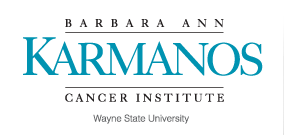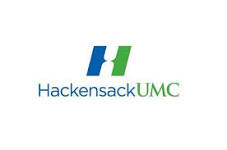Idasanutlin, Ixazomib Citrate, and Dexamethasone in Treating Patients With Relapsed Multiple Myeloma
| Status: | Recruiting |
|---|---|
| Conditions: | Hematology, Hematology |
| Therapuetic Areas: | Hematology |
| Healthy: | No |
| Age Range: | 18 - Any |
| Updated: | 7/14/2018 |
| Start Date: | December 30, 2015 |
| End Date: | May 13, 2021 |
Phase 1 / 2 Trial of Idasanutlin in Combination With Ixazomib and Dexamethasone in Patients With 17p Deleted, Relapsed Multiple Myeloma
This phase I/II trial studies the side effects and best dose of idasanutlin and ixazomib
citrate when given together with dexamethasone in treating patients with multiple myeloma
that has returned after a period of improvement. Drugs used in chemotherapy, such as
idasanutlin and dexamethasone, work in different ways to stop the growth of cancer cells,
either by killing the cells, by stopping them from dividing, or by stopping them from
spreading. Ixazomib citrate may stop the growth of cancer cells by blocking some of the
enzymes needed for cell growth. Giving idasanutlin, ixazomib citrate, and dexamethasone
together may work better in treating patients with multiple myeloma.
citrate when given together with dexamethasone in treating patients with multiple myeloma
that has returned after a period of improvement. Drugs used in chemotherapy, such as
idasanutlin and dexamethasone, work in different ways to stop the growth of cancer cells,
either by killing the cells, by stopping them from dividing, or by stopping them from
spreading. Ixazomib citrate may stop the growth of cancer cells by blocking some of the
enzymes needed for cell growth. Giving idasanutlin, ixazomib citrate, and dexamethasone
together may work better in treating patients with multiple myeloma.
PRIMARY OBJECTIVES:
I. To determine the maximum tolerated doses (MTD) of idasanutlin and ixazomib (ixazomib
citrate) to be used in combination with dexamethasone in patients with relapsed or refractory
multiple myeloma with TP53 (17p) deletion. (Phase I) II. To evaluate the confirmed response
rate of ixazomib and idasanutlin used in combination with dexamethasone in patients with
relapsed or refractory multiple myeloma with TP53 (17p) deletion. (Phase II)
SECONDARY OBJECTIVES:
I. To describe the toxicities and the confirmed response rate associated with the combination
of idasanutlin, ixazomib and dexamethasone. (Phase I) II. To describe the toxicities
associated with the combination of idasanutlin, ixazomib and dexamethasone. (Phase II) III.
To describe the complete response (CR) and very good partial response (VGPR) rates. (Phase
II) IV. To assess progression-free and overall survival. (Phase II)
TERTIARY OBJECTIVES:
I. Assess murine double minute 2 (MDM2) inhibition in bone marrow plasma cells. II. Identify
potential biomarkers associated with response. III. To explore the pharmacodynamic effects of
idasanutlin.
OUTLINE: This is a phase I, dose-escalation study of idasanutlin and ixazomib citrate
followed by a phase II study.
Patients receive ixazomib citrate orally (PO) on days 1, 8, and 15 and idasanutlin PO once
daily (QD) on days 1-5 every 28 days in the absence of disease progression or unacceptable
toxicity. Patients also receive dexamethasone PO on days 1, 8, 15, and 22 every 28 days for
12 courses at the discretion of the treating physician.
After completion of study treatment, patients are followed up for 30 days, every 3 months,
and then every 6 months.
I. To determine the maximum tolerated doses (MTD) of idasanutlin and ixazomib (ixazomib
citrate) to be used in combination with dexamethasone in patients with relapsed or refractory
multiple myeloma with TP53 (17p) deletion. (Phase I) II. To evaluate the confirmed response
rate of ixazomib and idasanutlin used in combination with dexamethasone in patients with
relapsed or refractory multiple myeloma with TP53 (17p) deletion. (Phase II)
SECONDARY OBJECTIVES:
I. To describe the toxicities and the confirmed response rate associated with the combination
of idasanutlin, ixazomib and dexamethasone. (Phase I) II. To describe the toxicities
associated with the combination of idasanutlin, ixazomib and dexamethasone. (Phase II) III.
To describe the complete response (CR) and very good partial response (VGPR) rates. (Phase
II) IV. To assess progression-free and overall survival. (Phase II)
TERTIARY OBJECTIVES:
I. Assess murine double minute 2 (MDM2) inhibition in bone marrow plasma cells. II. Identify
potential biomarkers associated with response. III. To explore the pharmacodynamic effects of
idasanutlin.
OUTLINE: This is a phase I, dose-escalation study of idasanutlin and ixazomib citrate
followed by a phase II study.
Patients receive ixazomib citrate orally (PO) on days 1, 8, and 15 and idasanutlin PO once
daily (QD) on days 1-5 every 28 days in the absence of disease progression or unacceptable
toxicity. Patients also receive dexamethasone PO on days 1, 8, 15, and 22 every 28 days for
12 courses at the discretion of the treating physician.
After completion of study treatment, patients are followed up for 30 days, every 3 months,
and then every 6 months.
Inclusion Criteria:
- Diagnosis of multiple myeloma (MM) with deletion 17p (del17p) or monosomy 17 by
fluorescence in situ hybridization (FISH) who have received at least one line of
therapy
- Calculated creatinine clearance (using Cockcroft-Gault equation) >= 30 mL/min
- Aspartate aminotransferase (AST) (serum glutamic oxaloacetic transaminase [SGOT]) and
alanine aminotransferase (ALT) (serum glutamate pyruvate transaminase [SGPT]) =< 3.0 x
upper limit of normal (ULN)
- Total bilirubin =< 1.5 x the upper limit of the normal range (ULN)
- Absolute neutrophil count (ANC) >= 1500/mm^3
- Platelet count >= 75,000/mm^3
- Hemoglobin >= 8.0 g/dL
- NOTE: white blood count and platelet count criteria must be met without any
transfusion or growth factor support
- Patients with measurable disease defined as at least one of the following:
- Serum monoclonal protein >= 1.0 g/dL by protein electrophoresis
- > 200 mg of monoclonal protein in the urine on 24-hour electrophoresis
- Serum immunoglobulin free light chain >= 10 mg/dL AND abnormal serum
immunoglobulin kappa to lambda free light chain ratio
- Eastern Cooperative Oncology Group (ECOG) performance status (PS) 0, 1 or 2
- Ability to understand the purpose and risks of the study and provide signed and dated
informed consent and authorization to use protected health information
- Negative pregnancy test done =< 7 days prior to registration, for women of
childbearing potential only
- Willing to follow strict birth control measures as suggested below
- Female patients: if they are of childbearing potential (except if postmenopausal
for at least 1 year before the screening visit, OR are surgically sterile), agree
to one of the following:
- Practice 2 effective methods of contraception, at the same time, from the
time of signing the informed consent form through 90 days after the last
dose of study drug, OR
- Agree to practice true abstinence when this is in line with the preferred
and usual lifestyle of the subject; (periodic abstinence [eg, calendar,
ovulation, symptothermal, post-ovulation methods] and withdrawal are not
acceptable methods of contraception)
- Male patients: even if surgically sterilized (ie, status post-vasectomy), must
agree to one of the following:
- Agree to practice effective barrier contraception during the entire study
treatment period and through 90 days after the last dose of study drug, OR
- Agree to practice true abstinence when this is in line with the preferred
and usual lifestyle of the subject; (periodic abstinence [eg, calendar,
ovulation, symptothermal, post-ovulation methods] and withdrawal are not
acceptable methods of contraception)
- Willing to return to enrolling institution for follow-up (during the Active Monitoring
Phase of the study)
- Willing to provide bone marrow and blood samples for correlative research purposes
Exclusion Criteria:
- Other malignancy requiring active therapy
- EXCEPTIONS: Non-melanoma skin cancer, ductal carcinoma in situ (DCIS) or
carcinoma-in-situ of the cervix
- NOTE: if there is a history of prior malignancy, they must not be receiving other
specific treatment for their cancer
- Other co-morbidity which would interfere with patient's ability to participate in
trial, e.g. uncontrolled infection, uncompensated heart or lung disease
- Other concurrent chemotherapy, radiotherapy, or any ancillary therapy considered
investigational
- NOTE: bisphosphonates are considered to be supportive care rather than therapy,
and are thus allowed while on protocol treatment
- Patient has >= grade 2 peripheral neuropathy, or grade 1 with pain on clinical
examination during the screening period
- Major surgery =< 14 days before study registration
- All CYP2C8 inhibitors, inducers, and substrates should be discontinued >= 7 days prior
to registration; systemic treatment with CYP2C8 inhibitors (anastrozole, montelukast,
quercetin, trimethoprim, gemfibrozil, rosiglitazone, pioglitazone), inducers
(carbamazepine, phenytoin, rifabutin, rifampin), or substrates (amiodarone,
repaglinide, rosiglitazone, sorafenib, torsemide) should be discontinued >= 7 days
prior to registration
- Systemic treatment with strong inhibitors of CYP3A4 (clarithromycin, telithromycin,
itraconazole, voriconazole, ketoconazole, nefazodone, posaconazole) or strong CYP3A4
inducers (rifampin, rifapentine, rifabutin, carbamazepine, phenytoin, phenobarbital,
Gingko biloba, St. John's wort) are not allowed =< 14 days before registration
- Evidence of current uncontrolled cardiovascular conditions, including cardiac
arrhythmias, congestive heart failure, angina, or myocardial infarction within the
past 6 months; Note: prior to study entry, any electrocardiogram (ECG) abnormality at
screening must be documented by the investigator as not medically relevant
- Corrected QT (QTc) > 470 milliseconds (msec) on a 12-lead ECG obtained during the
Screening period
- Note: If a machine reading is above this value, the ECG should be reviewed by a
qualified reader and confirmed on a subsequent ECG
- Known human immunodeficiency virus (HIV) positive
- Known hepatitis B surface antigen-positive status, or known or suspected active
hepatitis C infection
- Any serious medical or psychiatric illness that could, in the investigator's opinion,
potentially interfere with the completion of treatment according to this protocol
- Known allergy to any of the study medications, their analogues or excipients in the
various formulations
- Known gastrointestinal (GI) disease or GI procedure that could interfere with the oral
absorption or tolerance of ixazomib or idasanutlin including difficulty swallowing
- Diarrhea > grade 1, based on the National Cancer Institute (NCI) Common Terminology
Criteria for Adverse Events (CTCAE) grading, or currently taking antidiarrheals
- Need for ongoing therapeutic anticoagulation
- Female patients who are lactating or have a positive serum pregnancy test during the
screening period
- Patients that have previously been treated with ixazomib, or who participated in a
blinded study with ixazomib (whether treated with ixazomib or not)
We found this trial at
8
sites
Click here to add this to my saved trials
1500 E Duarte Rd
Duarte, California 91010
Duarte, California 91010
(626) 256-4673

Principal Investigator: Michael A. Rosenzweig
Phone: 626-471-9300
City of Hope Comprehensive Cancer Center City of Hope is a leading research and treatment...
Click here to add this to my saved trials
1500 East Medical Center Drive
Ann Arbor, Michigan 48109
Ann Arbor, Michigan 48109
800-865-1125

Principal Investigator: Craig E. Cole
Phone: 734-647-8901
University of Michigan Comprehensive Cancer Center The U-M Comprehensive Cancer Center's mission is the conquest...
Click here to add this to my saved trials
Atlanta, Georgia 30322
Principal Investigator: Leonard T. Heffner, M.D.
Phone: 404-778-1900
Click here to add this to my saved trials
Columbus, Ohio 43210
Principal Investigator: Craig C. Hofmeister
Phone: 614-293-7807
Click here to add this to my saved trials
4160 John R St #2122
Detroit, Michigan 48201
Detroit, Michigan 48201
(313) 833-1785

Principal Investigator: Jeffrey A. Zonder
Phone: 313-576-8732
Wayne State University/Karmanos Cancer Institute Karmanos is based in southeast Michigan, in midtown Detroit, and...
Click here to add this to my saved trials
30 Prospect Ave
Hackensack, New Jersey 07601
Hackensack, New Jersey 07601
(201) 996-2000

Principal Investigator: Joshua Richter
Phone: 551-996-8176
Hackensack University Medical Center Hackensack University Medical Center, part of the Hackensack University Health Network,...
Click here to add this to my saved trials
4500 San Pablo Rd S
Jacksonville, Florida 32224
Jacksonville, Florida 32224
(904) 953-2000

Principal Investigator: Vivek Roy
Phone: 855-776-0015
Mayo Clinic Florida Thousands of people come to Mayo Clinic in Jacksonville, Fla., annually for...
Click here to add this to my saved trials